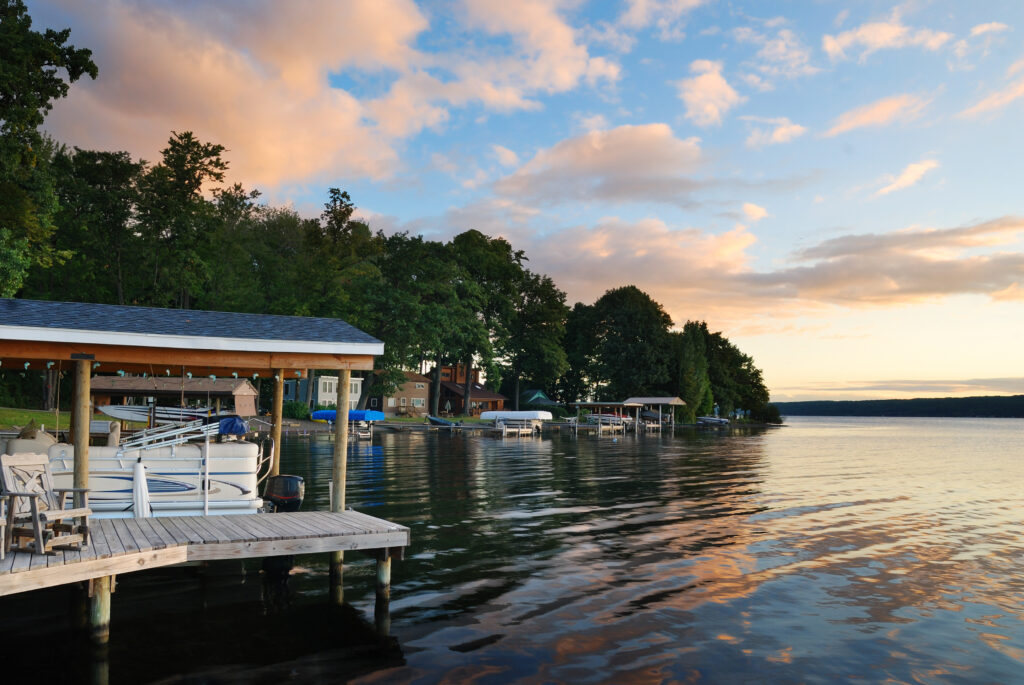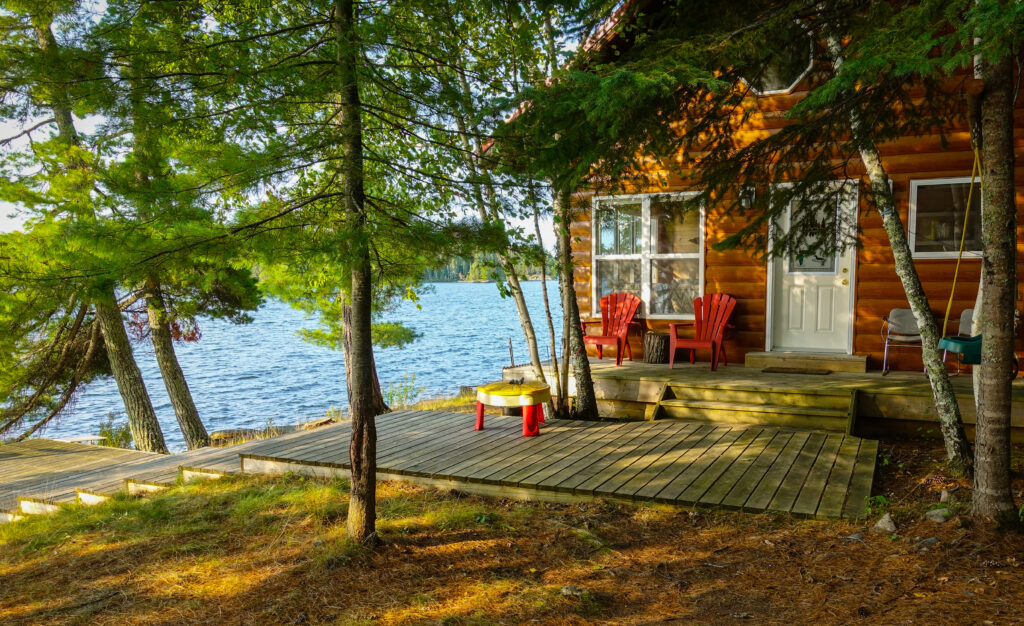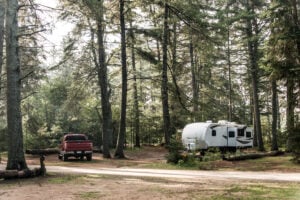
What to Do After Buying an Existing Business
What to Do After Buying an Existing Business The time period after buying a business can be both exciting and stressful. Making an investment into
Your camp can be a getaway, a place you go and enjoy time away. Whether your camp has been in your family for generations, or just recently built, making sure you have appropriate insurance to fit your needs is important to help protect your asset. The following information delves into insurance for your camp, the coverages you may want and the process you may experience to acquire insurance in Maine and New Hampshire.

Just as with your primary home, there are factors that affect the cost of insurance for your camp. The following non exhaustive list explains some of the circumstances and situations that may influence your camp’s insurance costs.
A significant factor in determining the cost of insurance for your camp is the estimated replacement cost. Estimated replacement cost can be described as an estimate of what it would cost to rebuild your camp using similar types and quality of materials.
Your deductible is the amount of money you are personally responsible for paying towards a loss before your insurance coverage begins paying towards a claim. Your camp’s deductible is an adjustable amount that you can set with your insurance agent. Setting a higher deductible for your camp’s policy can lower the premium cost. However, remember that the deductible represents the amount that you are personally responsible for, so make sure that you select an amount that you are comfortable with.
The unique characteristics of your camp such as the age, size, location, and building materials, can also affect your insurance rates. For example, older camps tend to be more expensive due to certain risks they may pose. Larger camps tend to be more expensive to insure as well – the larger the camp, the more materials will be needed to rebuild, resulting in a higher rate. Building materials are an important factor, too. If your camp has been built with rare or expensive materials, it typically will cost more to repair or replace. Camp features such as fireplaces, decks, beamed ceilings, and large windows can all raise your rates as the value of your camp increases. Location is also important. Many Maine and New Hampshire camps tend to be on the water and being on the water exposes you to a higher risk of flooding than if you were located inland. Camps located in historically high claim areas with weather-related incidents, such as hurricanes, fires, or severe storms, can also increase your camp’s insurance costs.
Having boats, pontoons, jet skis, and even inflatable floats at your camp can increase your rates as these are liabilities that present more risk.

Insurance for your camp is important. There are numerous risks that come with a camp, all of which you would like to be prepared for. Just as you would protect your primary home, it is recommended that you protect your camp with some of the following coverages. Depending on your circumstances, you may also want to speak to your insurance agent to determine whether there are additional coverage you ought to consider.
This type of coverage can help protect your camp if it is damaged by a covered hazard, by helping to pay for repairs or even to rebuild the structure entirely, subject to coverage limits.
Also known as contents coverage, this type of coverage can help with expenses for items such as electronics, furniture, clothes, and more if they are ruined, damaged, or stolen during a covered loss. To learn how to take a home inventory of your personal property click here.
This coverage can provide assistance if a third party is injured or has their property damaged while at your camp due to a covered loss or event. It can help with medical expenses, pain and suffering, damage to property, and legal expenses.
When it comes to selecting a policy for camp insurance, it’s a good idea to compare coverages. At Cross Insurance, we work with the nation’s leading carriers as well as regional insurers. With offices in Maine, New Hampshire, and across the Northeast, our agents are available for account management support. Contact us to request a camp insurance quote.

One possible way to save on your camp’s insurance is to invest in a security system. Camps tend to be occupied seasonally, and when your camp is left unattended during the winter months, it is more exposed to risks such as vandalism and fires. Investing in a security system that can alert you to these events and help prevent you from filing a claim may help you save.
Another possible way to save on your camp’s insurance is a bundling discount. Many of those who own a camp on the water tend to also own some sort of watercraft or boat, which presents a great opportunity to bundle the pair together and potentially save. To learn more on how you could bundle your insurance contact your local Cross Insurance agent today.
If you rent your camp (such as through a rental brokerage firm, website, app, or otherwise), whether full-time or part-time, you should contact your Cross Insurance agent to discuss what other insurance coverages and products you may want to consider and for information about available options.
___________________________________________________________________
This article is for general informational purposes only and is not to be relied upon or used for any particular purpose. Cross Insurance shall not be held responsible in any way for, and specifically disclaims any liability arising out of or in any way connected to, reliance on or use of any of the information contained in this article. The information contained or referenced in this article is not intended to constitute and should not be considered legal, insurance, accounting or other professional advice, nor shall it serve as a substitute for the recipient obtaining such advice. The views expressed in this article are that of its author and do not necessarily represent the views of Cross Financial Corp. and its subsidiaries and affiliates (“Cross Insurance”) or Cross Insurance’s management or shareholders.

What to Do After Buying an Existing Business The time period after buying a business can be both exciting and stressful. Making an investment into

Do I Really Need RV Insurance? Just as with any other vehicle, you will need some form of insurance to operate an RV on a

Insurance for Dog Trainers in Connecticut Why Is Insurance for Dog Trainers Important? Being a dog trainer can be a rewarding career. As with any